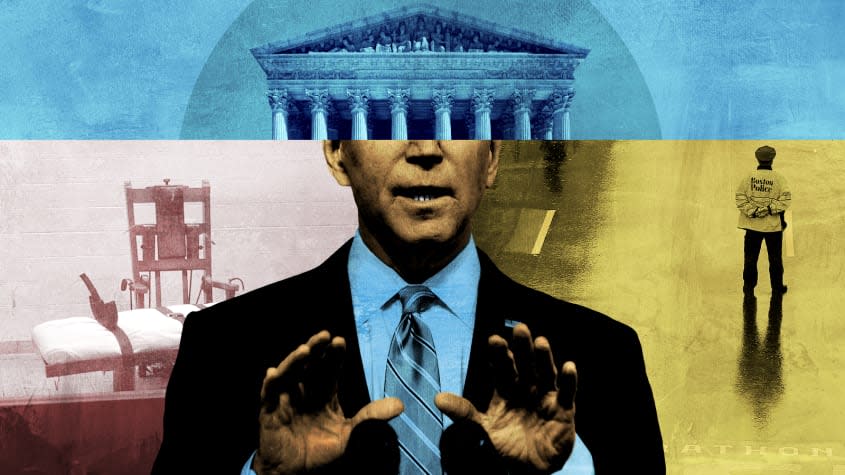Why Biden's team is pushing for a death penalty he won't execute

- Oops!Something went wrong.Please try again later.
Supreme Court Justice Amy Coney Barrett asked a smart question this week: Why is President Biden's Justice Department trying to revive the death penalty sentence for the Boston Marathon bomber when it apparently has no intention of actually executing him?
"I'm wondering what the government's end game is here," Barrett said during Wednesday's hearing on the case. "So the government has declared a moratorium on executions, but you're here defending his death sentences. And if you win, presumably, that means that he is relegated to living under the threat of a death sentence that the government doesn't plan to carry out. So I'm just having trouble following the point."
The government's response to Barrett suggested the moratorium is merely temporary — but that's unlikely, at least while Biden is in office. As Hot Air's Ed Morrissey reminds us, Biden campaigned last year on a promise to "eliminate the death penalty." And when Attorney General Merrick Garland announced the moratorium on federal executions in July, he cited concerns about racism and the "troubling number" of death row exonerations. There doesn't appear to be significant action on Capitol Hill to address those concerns, so the Biden administration seems to be content to shelve planned executions instead.
A more realistic answer to Barrett's question is that the Justice Department's default setting is to maximally assert the power and prerogatives of the president and the federal government, even if that means defending policies and decisions the president himself doesn't like or personally intend to implement. It's why a George W. Bush administration lawyer once publicly rationalized a hypothetical question about torturing the child of a terrorist, and it's why the Biden administration has defended many (but not all) of its predecessor's claims of "executive privilege" to hide information from the public.
Some of this is about power: No president wants to narrow the boundaries of executive authority. And some of it is about the Justice Department's culture — attorneys general of both parties have asserted their department's "duty to defend" acts of Congress, even when those measures are constitutionally dubious.
That leaves the Biden administration in the odd position of arguing for a death penalty it doesn't support and won't carry out. That's easier than doing the difficult work of persuading Congress to end the federal death penalty. But as Justice Barrett indicated, it leaves a lot of people — the bomber, the families of his many victims — in a cruel limbo.
You may also like
The American 'Great Resignation' by the numbers
Madonna makes Jimmy Fallon sweat, remove coat in 'disturbed' interview

